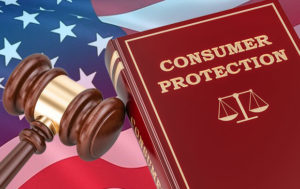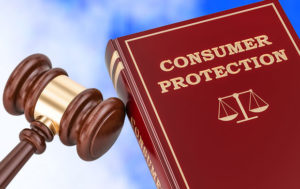
This story was originally published on May 9, 2012, and is brought to you today as part of our Best of ECT News series.
Many people believe they can say what they want on the Internet as long as they use a pseudonym. After all, it is easy to set up an account using an anonymous alter ego. In addition to believing they can post whatever they want, they may also think they are protected by the First Amendment of the U.S. Constitution. They may think freedom of speech has no limits, and when that speech — even vicious lies — is anonymously posted, that anonymity will shield them from liability.
Anonymous posters may not realize that when they sign up for an anonymous Internet user ID, they are likely agreeing to specific Terms of Service (ToS) and/or Privacy Policies that create indemnities for the Internet host as well as limit its liability. In those ToS or Privacy Policies, users may acknowledge that the Internet host may disclose their identities under a court order or in the event they violate the ToS.
Cybersmears Aren’t Protected Speech
Freedom of speech under the First Amendment of the Constitution does not protect defamatory statements posted on the Internet, and it does not matter whether the posters use their real names or pseudonyms. A jury in Fort Worth, Texas, agreed on a verdict in favor of Mark and Rhonda Lesher that related to just such a case, ABC News reported last month.
The Leshers filed a lawsuit in 2009 against “anonymous commenters who accused them of being sexual deviants, molesters, and drug dealers on Topix, once self-described as ‘the country’s largest local forum site.'”
Following the trial, according to the ABC News report, Mark Lesher said, “This vindicates us. This is vindication for all the scurrilous, vile, defamatory statements that caused us to be indicted, to be tried, that caused us to move out of town and my wife to lose her business … . You can’t post anonymous lies on the Internet without suffering the consequences.”
The Leshers filed their 2009 lawsuit following their acquittal on sexual assault charges, the Fort Worth Star Telegram reported.
Thousands of comments about the Leshers were posted on Topix, and the jury concluded that those made by the defendants were defamatory.
The fact that the Leshers were tried on criminal charges did not give the defendants in the case the right to post defamatory comments about them. Since the Leshers were acquitted, they could not defend on the ground that what they posted was true.
How Does One Find the Identity of an Anonymous Poster?
In cybersmear cases of this sort, the plaintiff sues the defendant “John Doe or Jane Doe,” since they really don’t know who the anonymous individual may be. Then the plaintiff subpoenas the records of the Internet host to learn of the identity of the anonymous poster.
In the normal course of events, the Internet host will likely do one of two things. It may file an objection to preclude the release of the information to the plaintiff, and therefore the Internet host defends against the disclosure. Or the Internet host informs the anonymous person of the demand and notes that if no objection is filed in court, the Internet host will turn over the identity to the plaintiff.
In either event, there may be a hearing in court to determine whether the plaintiff is entitled to learn the identity of the anonymous person. The Judge determines whether the identity will be disclosed. The standard for determining whether to disclose the identity is whether the anonymous posting has a “grain of truth” or is purely defamatory.
For instance, if a person posts that the CEO of Company X is incompetent, there may be a grain of truth if Company X has lost money or went bankrupt. However, if the anonymous post states that the CEO of Company X was an embezzler and spent time in prison, that posting would likely be considered libelous if the CEO was never charged, convicted, or spent time in prison.
How Are Anons Found?
The Leshers did not name specific defendants. They filed their suit against John Does (multiple unknown defendants) in 2009 and, through the court, subpoenaed records of the identities of 178 pseudonyms of posters on Topix.
Topix filed an objection; CEO Chris Tolles said that the request was “over broad and burdensome,” ABC News reported. Obviously, the Judge did not agree and ordered the disclosure of the IP addresses of the anonymous posters.
It turned out that a number of those IP addresses led to a Fort Worth salvage yard owned by the defendants and some relatives who defamed the Leshers, the jury concluded, awarding the Leshers US$13.78 million.
That TOS Really Does Matter
Filing the suit gave the Leshers the platform to seek to require Topix to share the IP addresses of specific anonymous Internet posters, and once the Leshers’ had the IP addresses, they could determine who might have posted the defamatory comments. If any of the anonymous posters had read Topix’s ToS, they would have realized that their identities were not really private.
Following are the specific terms from Topix’s ToS:You agree that Topix may access, preserve and disclose your account information and content if required by law or in a good faith belief that such access, preservation or disclosure is reasonably necessary to: (i) comply with legal process; (ii) enforce these Terms of Service; (iii) respond to claims that any content violates the rights of third parties; (iv) respond to your requests for customer service; or (v) protect the rights, property or personal safety of Topix, its users and the public.
Topix’s ToS appear to be pretty typical.
So What’s Next?
The case is still in the appeal period, so stay tuned for more. Of course, if the defendants do not have the money or assets to pay the judgment, there may be no appeal, and the plaintiffs may get nothing to show for the $13.78 million verdict.
In the meantime, the Leshers are now advocating the creation of criminal laws against anonymous posters. That way criminal prosecutors would pursue these claims instead of individuals who have to hire their own lawyers and fight in court.
In concept, this makes sense to the Leshers, since they had to sell their farm and property to pay $250,000 in attorneys’ fees and costs to pursue their claim, which took three years to get to trial.
In Summation
Anonymous Internet posting has been the norm for years, and this appears to be the first major verdict in favor of plaintiffs in a defamatory statement case of this type.
This may have a chilling effect on people who think they are protected by anonymity simply because they use a pseudonym. However, if they don’t read ToS and Privacy Policies and realize they might not be protected, they may not read columns like this — or reports about folks who make the same mistake.












































Social Media
See all Social Media